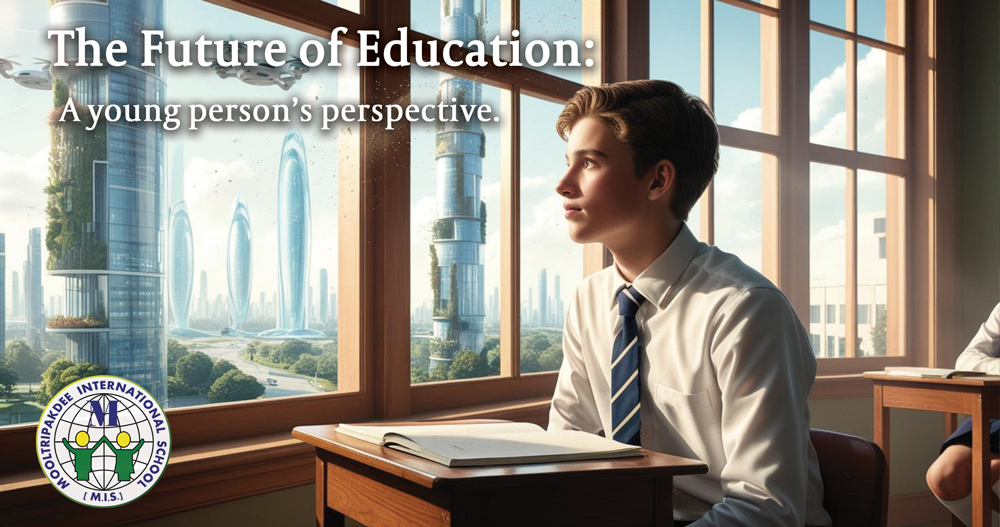The Future of Education: A young person’s perspective.

The future of education is uncertain. Ecological collapse and financial instability may mean choppy seas ahead for our young people to navigate. Add to this the implications and opportunities of the AI revolution and the attitudes and opinions of young people have never been more important. As part of an article writing competition, the Year 10 students at MIS wrestled with these ideas and shared their perspectives.
Here now is the winning article by Hagen Laermann
Many countries have their own unique approaches to educating the next generation. Teaching styles, curricula, and even the way students are examined to think about the world vary widely. However, one crucial perspective is often overlooked – ours, its students. We rarely get a say in how education evolves, despite it shaping our futures. In this article, we’ll explore a young person’s perspective on the future of education and the changes we believe are necessary.
Use of technology in classrooms
With the rise of ChatGPT and other generative AI models, schools worldwide must adapt to these changes, balancing the benefits of AI-powered computing with concerns over creativity, fairness and plagiarism. Already, 40% of educators use AI to boost engagement and to spark inspiration, while some countries have even introduced robot assistants to help create a personalised learning experience for learners. However, these advancements raise concerns about reduced human interaction and the risk of unoriginal work. As AI continues to evolve, we must reconsider how education prepares students for an ever-changing world, shifting job markets and global challenges, which is why we must change how we teach as well as what learners want to learn.
Changing the way we learn
As education evolves so must our expectations for students. To prepare the next generation for an uncertain future, we must equip them with critical thinking skills, an understanding of global challenges and the ability to innovate for positive change. This begins by recognising learners’ individual passions and talents through practical, hands-on learning. By doing so, we not only foster new perspectives and diversity, but also help students develop a deeper understanding of the real life lessons and a clearer sense of their interests and goals. Teachers can help guide them closer to their goals and play a significant role in shaping students’ learning experience, which is the next topic we need to discuss.
The role of teachers
Teachers play a crucial role in shaping a student’s learning experience. They not only expand students’ knowledge and motivate them to learn, but also act as mentors and guides. However, the world is facing a severe teacher shortage. According to UNESCO, 69 million teachers are needed to achieve universal basic education. The declining interest in teaching careers has led to overcrowded classrooms, overburdened educators and a decline in the quality of learning. If this issue remains unresolved, countries like China may turn to advanced technologies to fill the gap. AI-driven teaching tools could provide a more personalised, efficient and flexible learning experience. However, this shift raises an important question: Will the loss of human connection make students less social and overly reliant on technology, or could it revolutionise education for the better?
View from a young person
As the world of academics adapts to the changes and advancements of mankind, the decisions we make on our education will affect the reality of tomorrow. The knowledge, values and reasoning we provide to our next generation can shape the mindset of our planet and how people interact with one another. Once we solve the issues and complications, we ensure that the fate of our future is in safe hands — guaranteeing education remains a powerful force for progress and opportunity.
